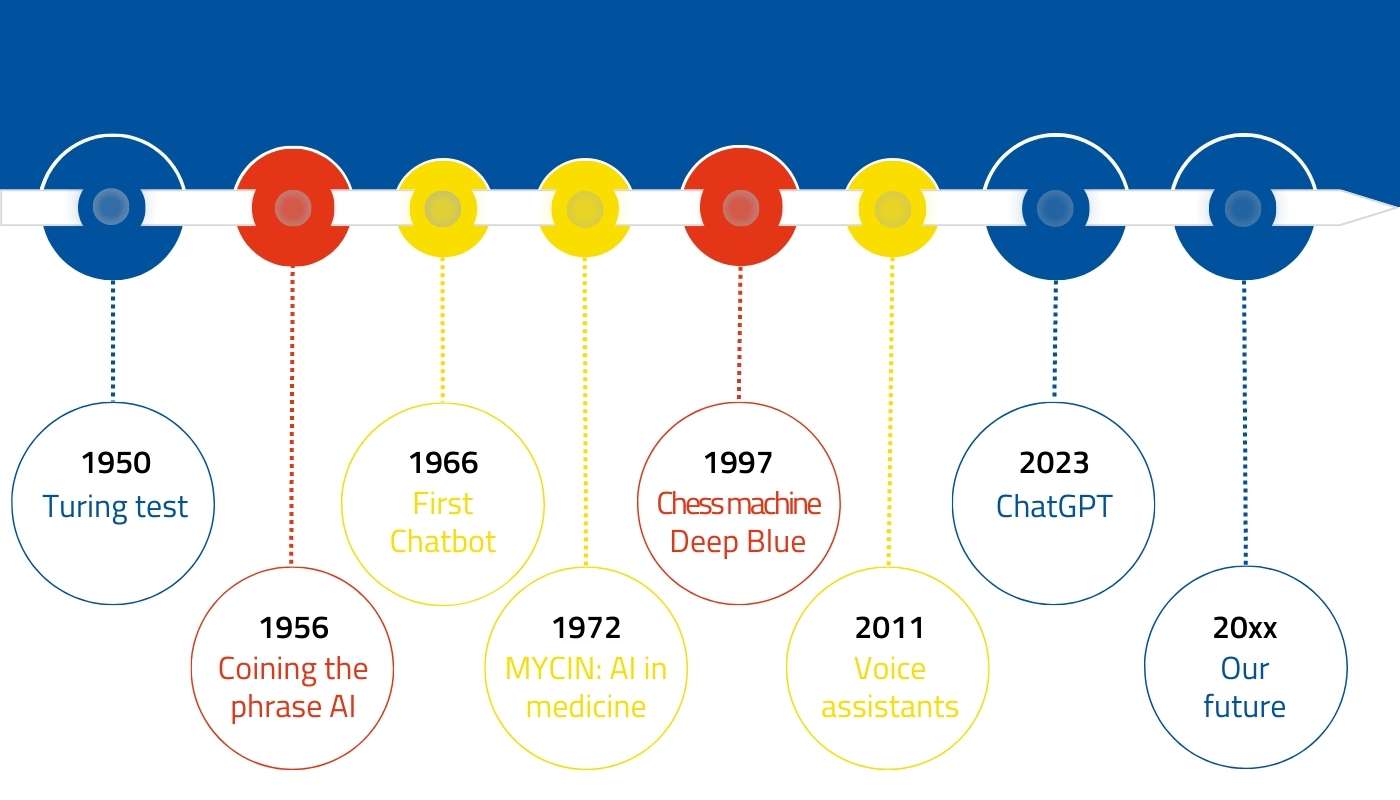Unlike conventionally programmed applications, a self-learning AI system improves with each new task. While the programmed task will always output the same result, AI's result may vary from time to time – ideally, the result will continuously get better. This is due to the fact that AI does not follow rigid rules, but creates its own rules based on historical data and constantly optimizes itself.
The following explanation, including infographics, will provide you with detailed information about the differences between the use of artificial intelligence and the conventional approach or classic programming.


